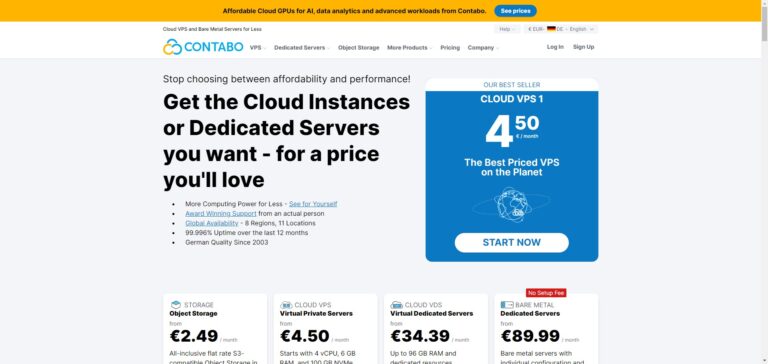Demystifying Cloud Computing: A Comprehensive Overview

In today’s rapidly evolving digital landscape, the term “cloud computing” has become ubiquitous. From individuals to businesses of all sizes, cloud computing has transformed the way we store, access, and process data and applications. But what exactly is cloud computing, and how does it work? In this article, we’ll break down the concept of cloud computing and explore its various aspects, benefits, and challenges.
What is Cloud Computing?
Cloud computing is a technology that enables the delivery of a wide range of computing services over the internet, providing users with on-demand access to computing resources like servers, storage, databases, networking, software, and more. Instead of relying on a local server or personal computer to handle data and applications, cloud computing allows users to access these resources from remote data centers, often operated by third-party providers.
Key Characteristics of Cloud Computing
- On-Demand Self-Service: Cloud services can be provisioned and managed by users without requiring human intervention from service providers. Users can create and manage resources as needed, scaling them up or down to meet their requirements.
- Broad Network Access: Cloud services are accessible over the internet from various devices, including laptops, smartphones, and tablets. This accessibility enables users to work from anywhere with an internet connection.
- Resource Pooling: Cloud providers use multi-tenant models, where resources are shared among multiple users. This resource sharing helps reduce costs and increase efficiency.
- Rapid Elasticity: Cloud resources can be quickly scaled up or down to accommodate changing workloads. This elasticity ensures that users pay only for the resources they use.
- Measured Service: Cloud computing services are billed based on actual usage, allowing users to monitor and control their costs more effectively.
Types of Cloud Services
There are three primary service models in cloud computing, often referred to as the Cloud Service Models:
- Infrastructure as a Service (IaaS): IaaS provides users with virtualized computing resources like virtual machines, storage, and networking. Users have full control over the operating system and applications, making it a suitable choice for businesses needing flexibility and scalability.
- Platform as a Service (PaaS): PaaS offers a platform where developers can build, deploy, and manage applications without worrying about the underlying infrastructure. This model streamlines application development and reduces the complexity of infrastructure management.
- Software as a Service (SaaS): SaaS delivers software applications over the internet, eliminating the need for installation and maintenance. Users access these applications via web browsers, and they are often billed on a subscription basis.
Deployment Models
Cloud computing can be deployed in various ways:
- Public Cloud: Public cloud services are owned and operated by third-party providers and are available to the general public. They offer scalability, cost-effectiveness, and are ideal for applications with variable workloads.
- Private Cloud: Private clouds are used exclusively by a single organization. They provide greater control, security, and customization but typically come at a higher cost.
- Hybrid Cloud: A hybrid cloud combines public and private cloud resources. This model allows businesses to maintain sensitive data in a private cloud while utilizing the scalability of a public cloud for other tasks.
Benefits of Cloud Computing
- Cost-Efficiency: Cloud computing reduces the need for upfront capital investments in physical hardware and allows users to pay for resources on a pay-as-you-go basis.
- Scalability: Users can easily scale their resources up or down to meet changing demands, ensuring optimal resource utilization.
- Accessibility: Cloud services can be accessed from anywhere with an internet connection, enhancing collaboration and flexibility.
- Security and Reliability: Reputable cloud providers invest in state-of-the-art security measures and redundancy, making data loss and system downtime less likely.
Challenges and Concerns
While cloud computing offers numerous benefits, there are also concerns to consider, including data security, compliance, and potential vendor lock-in. It’s essential for users to carefully evaluate their cloud provider and develop a comprehensive cloud strategy to address these concerns.
Conclusion
Cloud computing has revolutionized the way individuals and organizations manage and leverage computing resources. With its ability to offer on-demand services, scalability, and cost-efficiency, cloud computing is likely to continue shaping the future of technology. Whether you’re a small business looking to reduce IT costs or an individual storing photos and documents in the cloud, understanding the basics of cloud computing can help you make informed decisions and take full advantage of this transformative technology.
Listings Related to the Article: Demystifying Cloud Computing: A Comprehensive Overview
Sewer Heroes
Sewer Heroes Inc. is your go-to expert for dependable and efficient sewer and plumbing solutions. Serving both residential and commercial clients, we specialize in trenchless sewer repair, hydro jetting, drain cleaning, and cutting-edge diagnostics. Our skilled team is dedicated to delivering quick, cost-effective, and durable results with minimal impact on your property.
- Category
- Business » Business Services » Domestic Services
Georgia Institute of Technology
The Georgia Institute of Technology (Georgia Tech) is a leading public research university located in Atlanta, Georgia. Known for its innovative programs in engineering, computing, business, and design, Georgia Tech combines cutting-edge research with a commitment to hands-on learning. With a strong emphasis on technology and entrepreneurship, Georgia Tech prepares students to tackle global challenges and drive innovation across industries.
- Category
- Reference » Education » Colleges and Universities
Contabo
Contabo stands out as a premier web hosting and cloud service provider, offering unparalleled computing power at an exceptionally competitive cost. With a commitment to customer satisfaction, Contabo provides award-winning support delivered by real people, not automated bots.
- Category
- Computers » Internet » Web Hosting
More Articles Like: Demystifying Cloud Computing: A Comprehensive Overview
Understanding Apache Cordova
Apache Cordova, formerly known as PhoneGap, is an open-source mobile development framework that enables developers to build mobile applications using web technologies such as HTML, CSS, and JavaScript. It allows for the creation of cross-platform mobile applications, meaning a single codebase can be used to deploy apps on multiple mobile platforms, including Android, iOS, and others. Apache Cordova […]
The Evolution of Libraries: Are They Still Relevant in the Digital Age?
Libraries have long been regarded as the cornerstone of education and knowledge dissemination. Traditionally, these institutions housed an extensive collection of books, providing communities with access to a vast reservoir of information. However, as we navigate the ever-changing landscape of the digital age, the relevance of libraries has come into question. In this article, we’ll […]
Virtual Network Computing (VNC) vs. SSH: Understanding the Differences
In the world of remote access and control, Virtual Network Computing (VNC) and Secure Shell (SSH) are two popular and powerful tools that allow users to connect to and manage remote systems. While both VNC and SSH serve similar purposes, they have distinct differences in terms of their functionality, security, and use cases. In this […]






